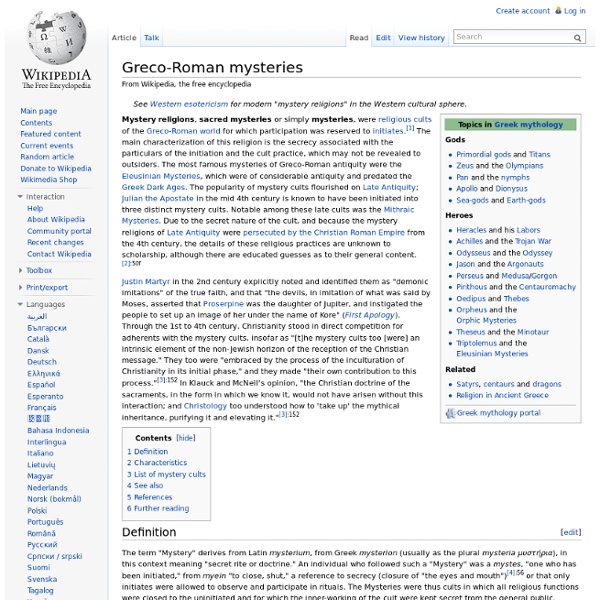Greco-Roman mysteries

Spiritual Movie List - Conscious CT - East of the River Holistic Community
This is a listings of over 90 spiritual films. What constitutes a spiritual film is subjective. Those included in this list tend to be uplifting (I like films that leave me feeling good) and have some mystical quality. Some of the films listed were included with the monthly Spiritual Cinema Circle DVD's and may be difficult to locate separately. Each listing includes name, major actors, and director only if well known. Clicking on the title will take you to the IMDB movie listing where you can watch the trailer, see a list of all the actors and learn more about the movie. Gary Lockwood Stanley Kubrick, Director 8.2 141 1968 Mankind finds a mysterious, obviously artificial, artifact buried on the moon and, with the intelligent computer HAL, sets off on a quest. Russell Crowe, Ed Harris, Jennifer Connely Ron Howard, Director 7.8 135 2001 After a brilliant but asocial mathematician accepts secret work in cryptography, his life takes a turn to the nightmarish. Tony Goldwyn, F.
Related:
Related:



